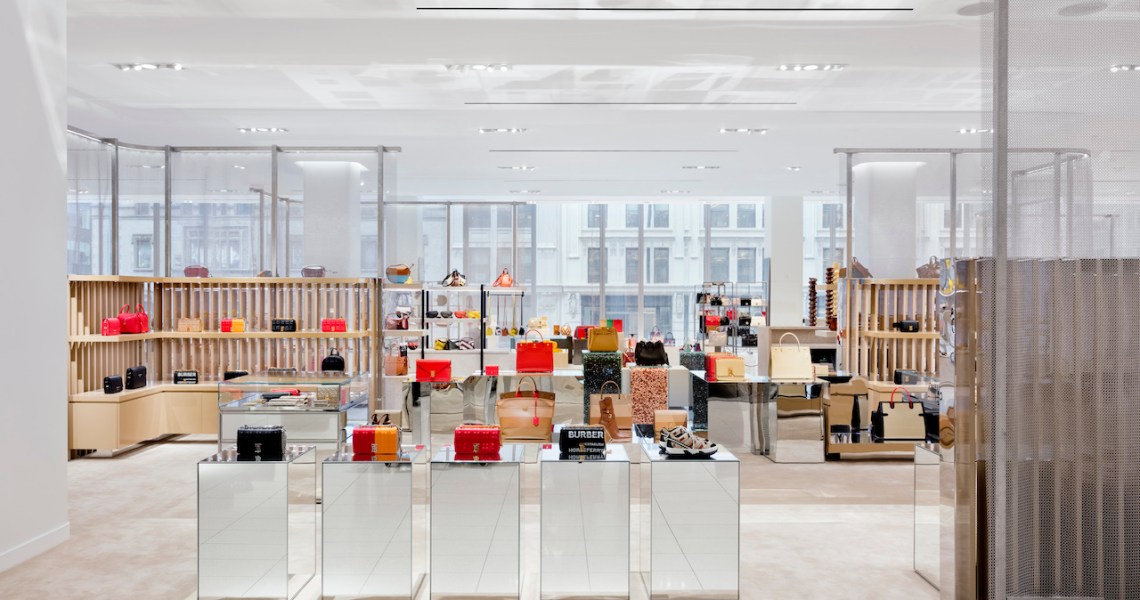Nordstrom’s home city of Seattle, described by the New York Times as “America’s coronavirus capital,” has been hit hard by the outbreak. In response, Nordstrom has taken defensive measures to stay safe, but the company’s optimistic response doesn’t seem a match for the potential damage facing both Nordstrom and department stores at large.
Nordstrom’s net earnings for the three months ending in February fell to $193 million from $248 million a year earlier. In an earnings call last week, newly appointed CEO Erik Nordstrom said less than 30% of the company’s private-label business, which makes up about 10% of the business, comes from China.
“On coronavirus, at this time, we haven’t really seen a very material change or disruption to the supply chain,” said Anne Bramman, CFO of Nordstrom, during the call. She added that the company’s recent efforts to make its business more flexible, like the opening of its inventory-free Nordstrom Local stores, should help it respond to the rapid changes the coronavirus necessitates.
The company sent an email to customers on Saturday assuring them that stores will remain open and that Nordstrom will take precautionary measures to keep customers safe.
The guidance Nordstrom offered to investors for the next year did not factor in any elements of coronavirus, a fact which Forrester retail analyst Sucharita Kodali, speaking to Reuters, called “concerning.”
For big department stores like Nordstrom, the outbreak will likely have a massive effect just as it has had on other areas of fashion. Now that it has spread outside of Asia and inhibited travel globally, the full impact of the virus on retail will begin to manifest in earnings reports.
“Investors have a lot at risk right now,” said Scott Stuart, CEO of Turnaround Management Association. “Retailers have to be communicative with their consumers to show they’re sensitive to the risk while still appearing confident. And the effect on investors will be a result of how effective that is. You’ve got to be open and honest with your investors right now, because it’s an incredibly challenging time for everyone at the moment.”
Ad position: web_incontent_pos1
A Nordstrom representative told Glossy that the company is monitoring the situation closely and has taken a few steps to keep both customers and employees safe. For now, all Nordstrom stores are remaining open with no plans to close. Nordstrom has increased the frequency of cleaning of its stores and made hand sanitizer available at all locations for free. Internally, Nordstrom is asking employees at its Seattle office, where the company is headquartered, to work from home.
Other Seattle retailers have taken more drastic measures. Amazon asked everyone at its downtown Seattle office, which had one employee confirmed to have contracted coronavirus, to stay home.
While total revenue for Nordstrom was up this year, from $4.48 billion last year to $4.54, the company’s profits have taken a hit thanks to pricey investments like the new New York flagship. Investing so heavily in brick-and-mortar just before the coronavirus hit may be an unfortunate turn of events given the likely impact on retail foot traffic from the outbreak.
A Coresight Research report asked U.S. consumers about how their shopping habits will change in the wake of the outbreak and found that more than 40% of people who have already altered their routines said they are avoiding shopping centers and malls, and 30% are avoiding stores in general. On Macy’s fourth-quarter earnings call, CEO Jeff Gennette said the outbreak will likely have a sizable impact on both his company and retail at large, pointing to the big dip in international tourism as one big danger area.
If retail foot traffic proves to be as low as some are estimating, companies like Nordstrom, Macy’s and others will likely see continued declines in revenue, particularly as the year goes on.
Ad position: web_incontent_pos2
“Where we’re seeing the most profound effects is in areas where you get a lot of people grouped together,” Stuart said. “That’s retail, hospitality, air transportation. I think if this were the holiday season, retailers would be having a very different conversation right now. Right now, they may not feel like there’s that much change, but the conversation will change if it remains a problem till later in the year.”




